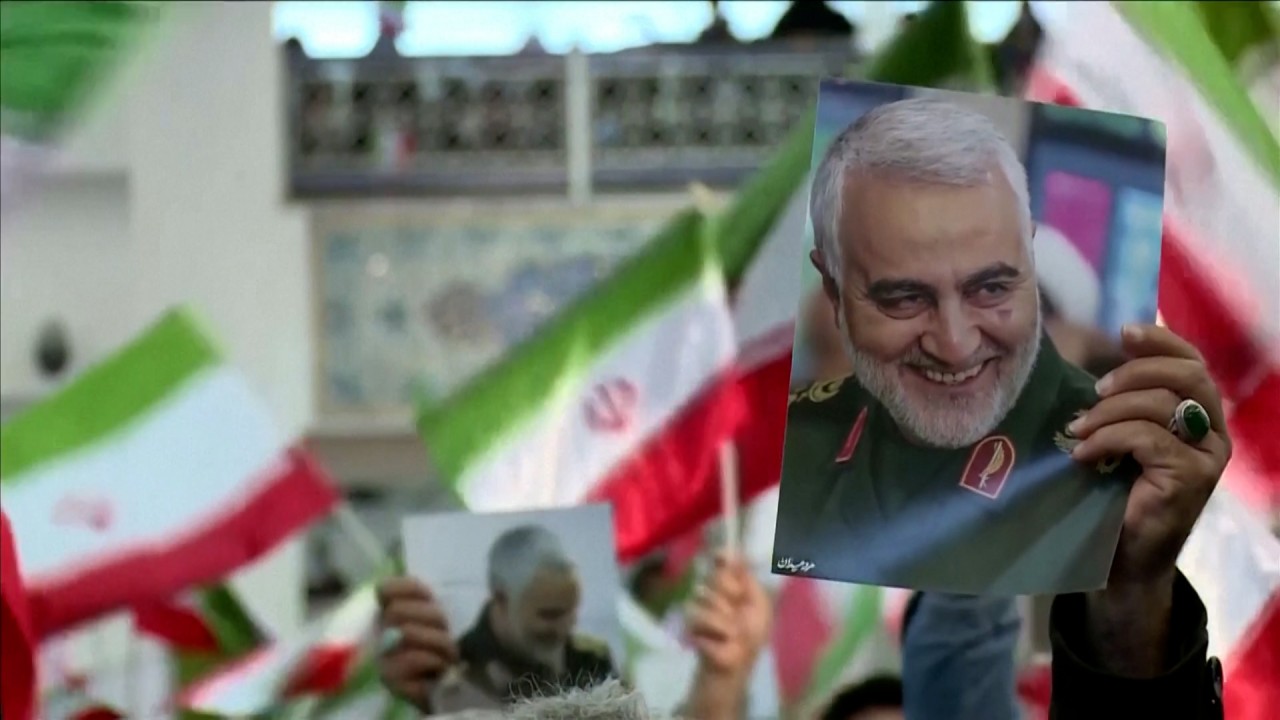
Russia demands cloud Iran nuclear talks as Ukraine conflict enters picture
- Russia is seeking guarantees from the US before it backs a potential Iran nuclear deal with world powers
- Blinken says sanctions on Russia over its invasion of Ukraine have nothing to with any Iran deal
Talks to revive Iran’s 2015 nuclear deal with world powers are mired in uncertainty after Russia’s demands for a US guarantee that the sanctions it faces over the Ukraine conflict would not hurt its trade with Tehran.
Moscow threw the potential spanner in the works on Saturday, just as months of indirect talks between Tehran and Washington in Vienna appeared to be headed for an agreement, with Foreign Minister Sergei Lavrov saying the Western sanctions over Ukraine had become a stumbling block for the nuclear deal.
On Monday Iran gave a muted reaction to Russia’s demands. “We are still waiting for further details [from Moscow],” Iranian Foreign Ministry spokesman Saeed Khatibzadeh said.

He rejected the notion that Russia was endangering an agreement in the final stage of the negotiations, saying “Russia’s position in the negotiations has always been constructive,” Iranian news agency ISNA reported.
US Secretary of State Antony Blinken sought to dispel talk of obstacles on Sunday when he said the sanctions imposed on Russia over Ukraine had nothing to do with a potential nuclear deal with Iran.
“These things are totally different and just are not, in any way, linked together. So I think that’s irrelevant,” Blinken said in an interview with CBS’s Face the Nation show. He added that a potential deal with Iran was close, but cautioned that a couple of very challenging remaining issues were unresolved.
Yet a senior Iranian official told Reuters earlier that Tehran was waiting for clarification from Moscow about the comments from Lavrov, who said Russia wanted a written US guarantee that Russia’s trade, investment and military-technical cooperation with Iran would not be hindered in any way by the sanctions.

“It is necessary to understand clearly what Moscow wants. If what they demand is related to the JCPOA, it would not be difficult to find a solution for it,” said the Iranian official, referring to the 2015 nuclear deal, the Joint Comprehensive Plan of Action.
“But it will be complicated, if the guarantees that Moscow has demanded, are beyond the JCPOA.”
British, French and German diplomats who had flown home before Lavrov’s comments to brief officials on the nuclear talks have not indicated when they might return to Vienna.
Henry Rome, Iran analyst at consultancy Eurasia group, said reviving the nuclear pact without Russia was “tricky but probably doable, at least in the near term”.
“If Russia continues to obstruct the talks, I think the other parties and Iran will have no choice but to think creatively about ways to get the deal done without Moscow’s involvement,” Rome said.
On Sunday, Iranian negotiators met EU diplomat Enrique Mora, who coordinates the talks between Tehran and world powers.
Iran and UN watchdog agree approach to resolve nuclear issues
Since the election of Iran’s hardline president Ebrahim Raisi last year, senior officials have been pushing for deeper ties with Russia.
Iran’s top authority, Supreme Leader Ayatollah Khamenei, has publicly and privately been calling for closer ties with Russia due to his deep mistrust of the United States.
The 2015 agreement, between Iran and the United States, France, Britain, Germany, Russia and China, eased sanctions on Tehran in return for limiting Iran’s enrichment of uranium, making it harder for Tehran to develop material for nuclear weapons. The accord fell apart after then US president Donald Trump withdrew the United States in 2018.
The return of Iranian oil would help replace Russian barrels lost as the United States and its allies seeks to freeze out Moscow, following the invasion and soften the impact on the West which is already struggling with high inflation.

US negotiator Robert Malley has suggested that securing the nuclear pact is unlikely unless Tehran frees four US. citizens, including Iranian-American father and son Baquer and Siamak Namazi.
A senior Iranian official in Tehran said if Tehran’s demands are met the prisoners issue can be resolved with or without a revival of the nuclear deal.
Iran, which does not recognise dual nationality, denies US accusations that it takes prisoners to gain diplomatic leverage. In recent years, the elite Revolutionary Guards have arrested dozens of dual nationals and foreigners, mostly on espionage and security-related charges.
Eyes on Iran as US Navy plans new Middle East sea drone force
Tehran has sought the release of over a dozen Iranians in the United States, including seven Iranian-American dual nationals, two Iranians with permanent US residency and four Iranian citizens with no legal status in the United States.
The coming days are seen as pivotal by the West because of the rate at which Iran is making nuclear advances.
Its stockpile of enriched uranium has now reached more than 15 times the limit set out in the 2015 accord, the International Atomic Energy Agency said last week.
Additional reporting by Agence France-Presse, dpa


